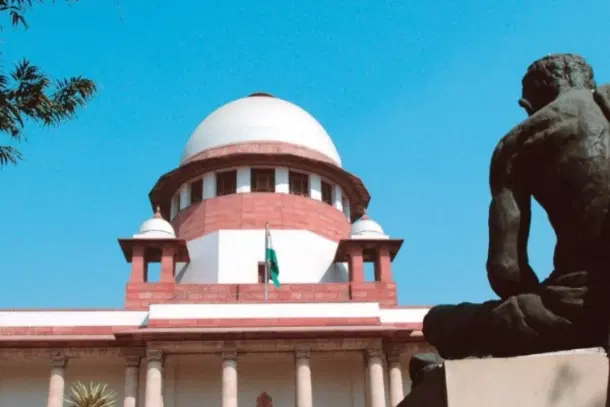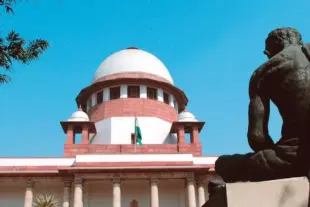News Brief
'When You Lose Elections, EVMs Are Tampered!': Supreme Court Rejects PIL Seeking Return To Ballot Paper Voting In India
Arjun Brij
Nov 26, 2024, 05:06 PM | Updated 05:06 PM IST
Save & read from anywhere!
Bookmark stories for easy access on any device or the Swarajya app.


The Supreme Court on Tuesday (26 November) dismissed a Public Interest Litigation (PIL) filed by evangelist Dr KA Paul, which sought the introduction of physical ballot voting in India. The petition also urged the Election Commission (EC) to disqualify candidates for at least five years if found guilty of distributing money, liquor, or other inducements during elections.
Dr Paul, who appeared as a petitioner-in-person, began his argument by stating that he filed the PIL after much prayer. In his submission, he argued that physical ballots were essential to ensure fair elections, pointing out that most democracies around the world, including 180 countries, use paper ballots, while India relies on Electronic Voting Machines (EVMs).
When Justice Vikram Nath asked him why he wanted to be involved in political matters, Dr Paul responded that his advocacy was not political but rather focused on protecting democracy.
He mentioned his global experience, including interactions with political leaders such as Russian President Vladimir Putin and former Liberian leader Charles Taylor. Dr Paul also claimed to have support from over 180 retired IAS and IPS officers, judges, and political figures, including representatives from 18 political parties who attended his summit in New Delhi.
Dr Paul argued that the current use of EVMs in India was vulnerable to tampering, citing statements by prominent leaders like Chandrababu Naidu and YS Jagan Mohan Reddy, who had alleged that EVMs could be manipulated. He further claimed that corruption during elections was rampant, pointing to a recent report by the EC, which claimed the seizure of over Rs 9,000 crore in cash and gold during the election period.
Justice Nath, however, rejected Dr. Paul's claims of widespread corruption, stating, "There is no corruption. Who says there is corruption?" He also questioned the petitioner's assertion that EVMs could be tampered with, remarking, "What happens is, if you win the elections, EVMs are not tampered. When you lose elections, EVMs are tampered with."
In his plea, Dr Paul urged the court to implement reforms in the electoral system, similar to practices in other democracies. He contended that physical ballot voting would reduce corruption and improve public trust in the electoral process.
He claimed that during recent elections, he had observed "mafia-like" activities and had evidence of bribery and malpractice, including large sums of money allegedly being distributed to political parties.
The court, while dismissing the PIL, noted that political parties in India have no issue with the current system and that it was Dr Paul, not the parties, who had concerns about the use of EVMs. Justice Nath also remarked that such issues were often raised when political leaders lost elections but were seldom questioned when they won.
Arjun Brij is an Editorial Associate at Swarajya. He tweets at @arjun_brij





